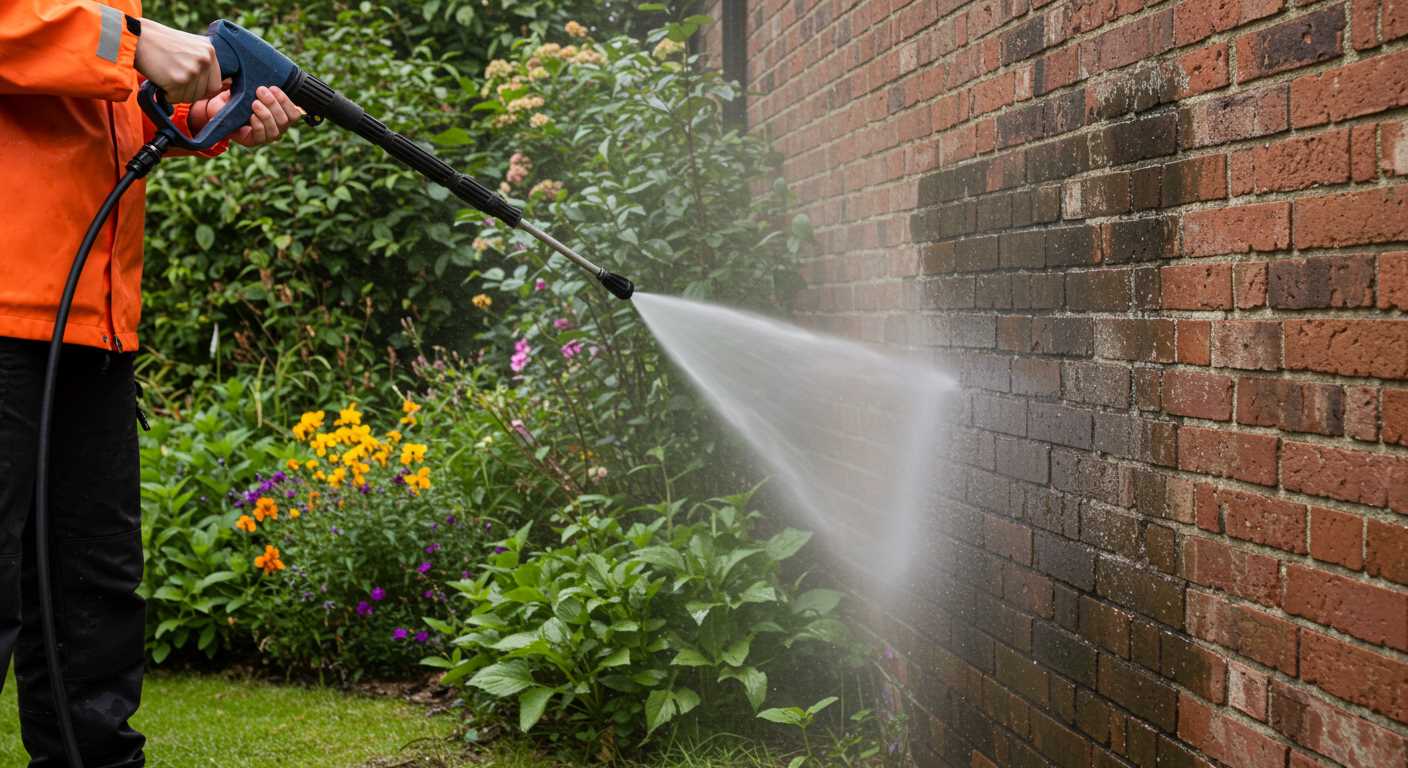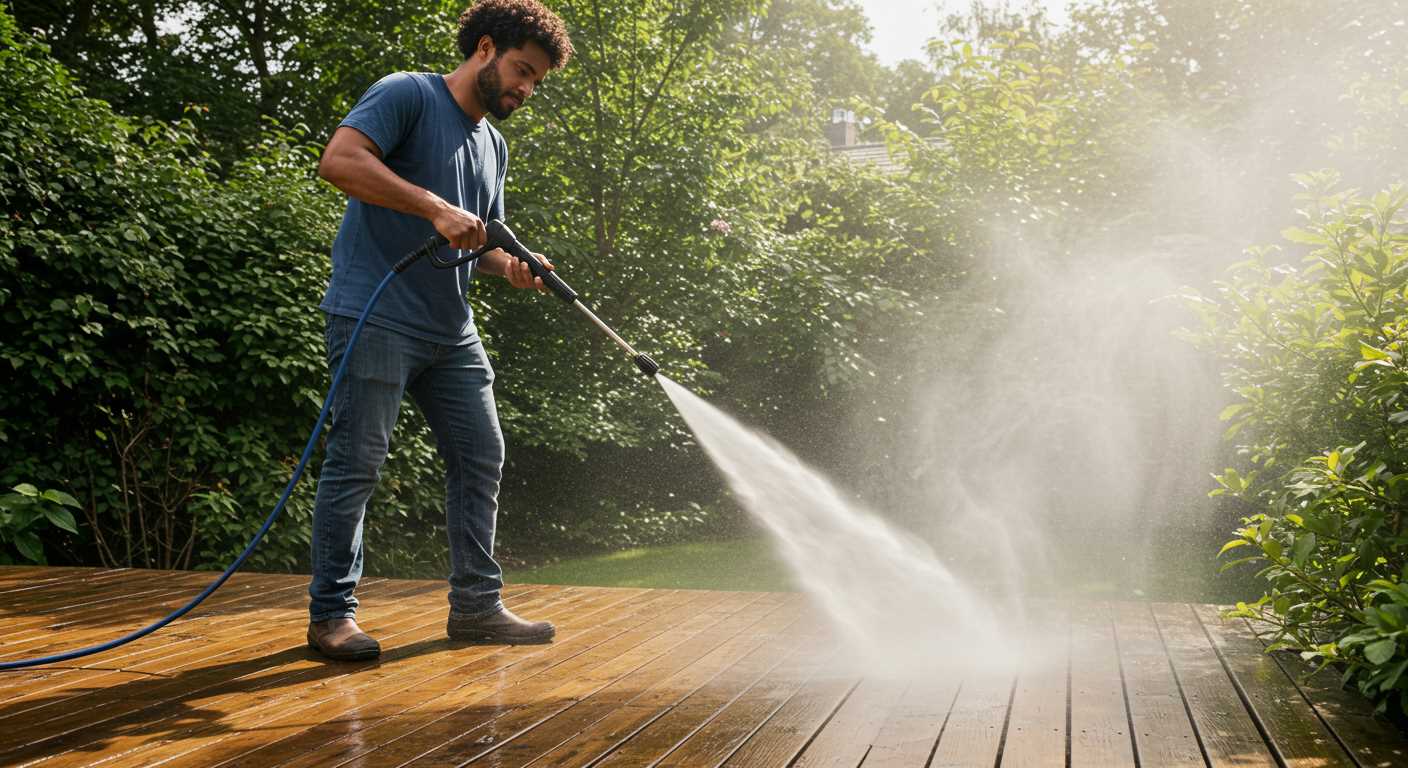

If you’re considering entering the cleaning service sector, take note: the average income derived from offering high-pressure cleaning services ranges between £50 to £200 per job, depending on factors such as location, service type, and customer base. After over a decade in the industry, I can assure you that establishing a loyal clientele will drive your revenue significantly.
Furthermore, opting for commercial contracts typically yields even higher profitability, with businesses often willing to pay £50 to £150 per hour for maintenance services. Regular contracts with local businesses can guarantee steady income and provide an opportunity to expand service offerings over time.
Effective marketing is another key to success. Utilizing social media platforms and local advertising can increase your customer reach, which directly translates into higher revenue potential. Don’t underestimate the power of word-of-mouth recommendations; satisfied clients often lead to referrals, significantly contributing to sustained growth.
Investing in quality equipment is crucial. While it might seem tempting to cut costs on equipment, reliable and high-performance machines will pay for themselves quickly in terms of efficiency and customer satisfaction. Ultimately, success in this venture hinges on providing excellent service, effective marketing, and maintaining your equipment properly.
Initial Costs and Investment Breakdown

Investing in a cleaning venture requires a clear financial outline. Expect to allocate around £2,000 to £5,000 for essential equipment, including a high-quality cleaning unit, hoses, nozzles, and accessories. A robust unit tailored for commercial use usually falls within £1,000 to £3,000. Don’t overlook the additional expenses for surface cleaners and specialized nozzles that enhance efficiency, which can range from £100 to £400.
Vehicle modifications should be factored in if you plan to transport your gear. Depending on your setup, this can cost between £500 to £2,000 for a suitable van or trailer equipped with storage solutions. Fuel and maintenance expenses for your vehicle should also be integrated into your budget.
Marketing efforts can set you back another £300 to £1,500. This may encompass a website, business cards, and local advertising strategies. Invest in social media advertising to extend your reach; budgeting around £200 to £800 for initial campaigns is advisable.
Insurance is non-negotiable. Expect a premium of £300 to £1,000, depending on coverage options. Don’t forget to account for the cost of licensing and permits, which can vary but typically run from £100 to £500.
In summary, initial financial commitments for launching this venture generally range from £3,500 to £10,000. Precise investment levels hinge on the scale and ambition of your operations. It’s prudent to maintain a contingency fund for unforeseen expenditures during the early stages, ideally around £500 to £1,000.
Average Earnings for Pressure Washing Services
In this field, earnings typically range from £30 to £80 per hour, depending on the service type and geographic location. Residential jobs, such as cleaning driveways or decks, often command £50 to £100 per service, while commercial contracts may lead to larger profits, sometimes exceeding £1,000 per project. Building relationships with property managers or real estate agents can consistently bring in higher-paying contracts.
Factors Influencing Income
Several aspects affect income levels. Experience, service quality, and pricing strategy play significant roles. Newcomers might start on the lower end of the scale, attracting clients through competitive rates. As reputation builds and expertise increases, it’s possible to adjust pricing upwards. Additionally, seasonal demands also create fluctuations; spring and summer often see a surge in requests, allowing for higher hourly rates during peak times.
Target Markets

Identifying the right client base is paramount. Focus on residential clients in affluent areas or commercial enterprises looking for regular maintenance. Specialising in niches like graffiti removal or soft washing can elevate service value. Building a portfolio of successful jobs not only boosts credibility but also increases referral traffic, translating to sustained income growth.
Factors Influencing Your Income Potential
Several elements directly impact earnings in this sector. The primary factors include the type of services offered, target market, pricing strategies and geographic location. Tailoring your services according to market demand can significantly enhance profitability.
Types of Services Offered
Expanding your service range enhances revenue streams. Basic cleaning is often supplemented with specialised options such as stain removal, driveway sealing and roof cleaning. Each additional service allows adjustment of pricing and attracts a wider clientele, thus increasing income potential.
Geographic Location
The area in which operations are conducted plays a crucial role. Urban regions often yield higher rates due to increased demand, while suburban areas may have lower, yet steadier work opportunities. Researching local competition and adjusting service offerings accordingly ensures optimal pricing and customer engagement.
Comparison of Residential vs Commercial Work
Residential tasks typically yield lower income per project compared to commercial assignments; however, the volume of residential clients can compensate for this. Generally, homeowners seek exterior cleaning services on an intermittent basis, while businesses often require regular maintenance contracts, leading to more stable revenue streams.
For residential jobs, an average hourly rate ranges from £30 to £60, depending on your region and specific services offered. In contrast, commercial engagements can command rates between £50 and £150 per hour, largely influenced by factors like the size of the facility and the complexity of the work.
Here’s a breakdown that illustrates average earnings on a per-job basis for both sectors:
| Type of Work | Average Earnings per Job | Frequency of Jobs |
|---|---|---|
| Residential | £100 – £300 | 10-15 jobs per month |
| Commercial | £500 – £2,000 | 2-5 jobs per month |
When assessing workload, residential contracts are often less labor-intensive but require more effort in customer acquisition and marketing. Conversely, commercial contracts can be more straightforward once established, providing consistent revenue with less need for frequent client outreach. It’s advisable to maintain a balanced portfolio of both types of work to enhance profitability and stability.
In conclusion, diversifying services to include both residential and commercial cleaning not only maximises income potential but also ensures a consistent flow of work, catering to different market segments effectively.
Seasonal Income Variations and Trends
Income from a cleaning venture sees considerable fluctuations throughout the year. Generally, the warmer months–specifically spring and summer–witness the highest demand due to increased outdoor activities and homeowners’ desire to refresh their properties.
Here are key trends to consider:
- Peak Season: Expect a surge in clients from March to July. Investing time in marketing and promotions during this period can significantly boost your earnings.
- Off-Season Preparation: November to February typically sees a drop in requests. Focus on maintenance of equipment, skill enhancement, and strategic planning for the bustling months ahead.
- Local Climate: Geographic location heavily influences seasonal patterns. Areas with milder winters can maintain a steadier stream of customers year-round, while harsher climates often lead to a pronounced off-season.
Beyond seasonal peaks, holidays also impact income trends. Spring cleaning, for instance, triggers increased interest in exterior cleaning services, while post-holiday periods might see homeowners looking to tidy up after entertaining guests.
Networking with local businesses can also provide additional income opportunities during slower seasons, such as partnerships with property management companies or real estate agents. Targeting these ventures during off-peak times can help mitigate income downturns.
Tracking fluctuations in demand over the years will guide future strategies, allowing for timely adjustments to maximize profitability. Understanding these patterns can lead to improved financial planning and sustainability for your enterprise.
Strategies to Increase Your Revenue

Focus on upselling additional services. Offering add-ons like surface sealing or restoration after a deep clean can significantly enhance your earnings per job.
Implement a referral program. Encourage satisfied clients to refer new customers by providing them with discounts or free services. This can lead to a steady influx of projects with minimal marketing costs.
Target high-demand niches. Specialising in areas such as graffiti removal, fleet washing, or cold-weather services can position you as a go-to expert in those segments, attracting clients willing to pay premium prices.
Leverage social media and local SEO. Showcase before-and-after photos on platforms like Instagram and create content related to maintenance tips on a blog. Optimising your website for local searches can bring in a consistent stream of clients searching for cleaning services online.
Develop partnerships with local businesses. Establishing relationships with property management companies, real estate agents, and landscaping businesses can lead to regular contracts and referrals, ensuring a constant workload.
Offer seasonal promotions. Tailor your marketing strategies around holidays or seasonal home maintenance needs. This can help stimulate demand during slower months and keep your schedule filled throughout the year.
Invest in advanced training. Gaining certifications or learning new techniques can set you apart and allow you to offer specialised services, potentially attracting higher-paying customers looking for quality.
Utilise an effective pricing strategy. Research competitors to determine optimal pricing but consider implementing tiered pricing based on service complexity to maximise profits on larger or more intensive jobs.








